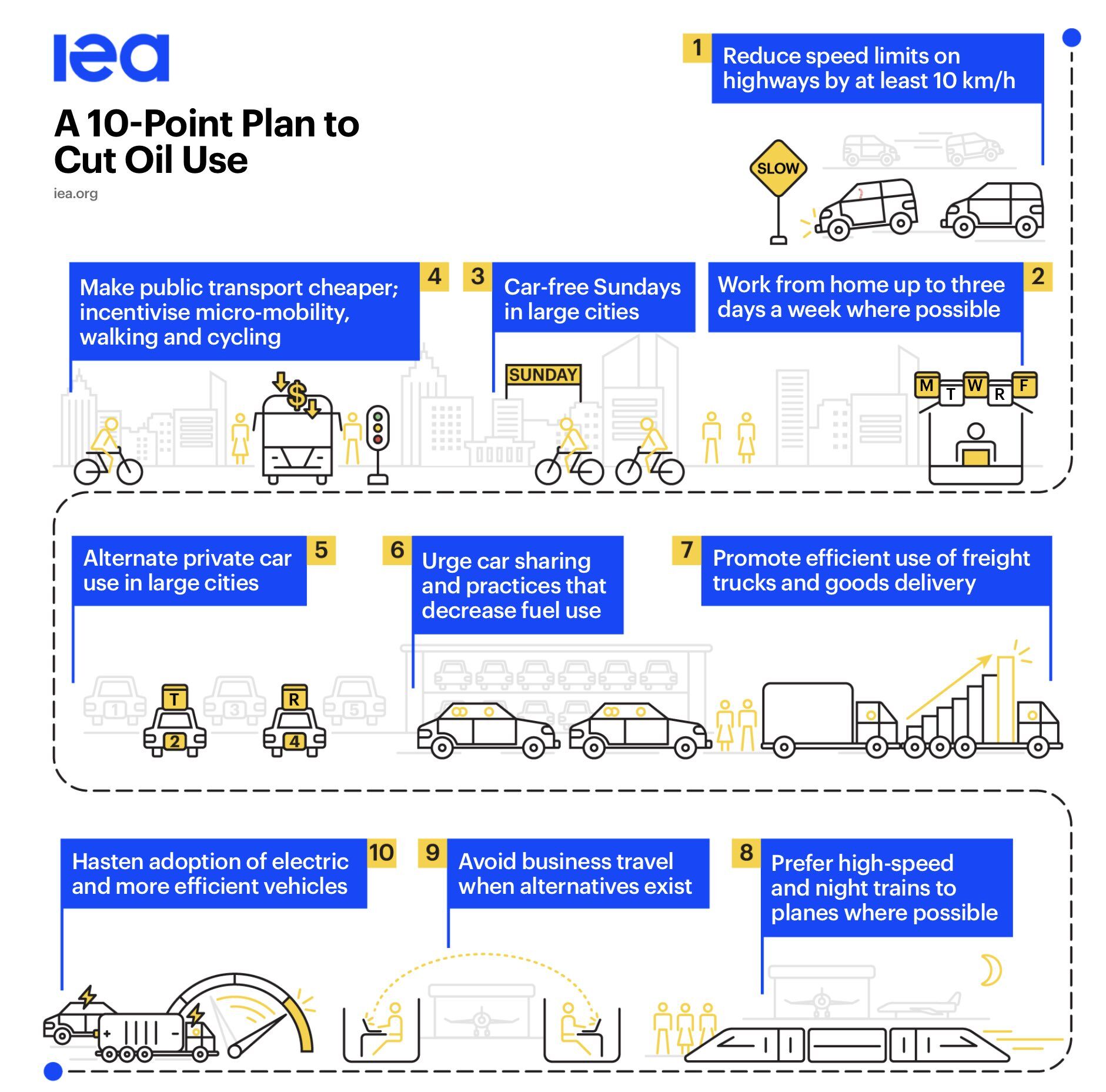How can oil consumption be reduced in 4 months and policies made more efficient in the long term?
In the face of the emerging global energy crisis triggered by Russia's invasion of Ukraine, the International Energy Agency (IEA) proposes 10 actions that can be put in place to reduce oil demand with immediate impact — and provides recommendations on how these actions can help pave the way to put oil demand on a more sustainable path in the long term.
Immediate actions such as these in advanced economies can cut oil demand by 2.7 million barrels a day in four months — and are useful to both government agencies and individual people.
Image

- Reduce speed limits on highways by at least 10 km/h
Around 290 kb/d of oil use can be saved in the short term through a speed limit reduction of just 10 km/h on motorways for cars. A further 140 kb/d (predominantly diesel) can be saved if heavy trucks reduce their speed by 10 km/h. - Work from home up to three days a week where possible
One day of working from home can avoid around 170 kb/d of oil use. Three days of working from home avoids around 500 kb/d in the short term. - Car-free Sundays in cities
Avoids around 380 kb/d of oil use in the short term if implemented in large cities every Sunday. If only one Sunday per month, the amount drops to 95 kb/d. - Make the use of public transport cheaper and incentivise micro-mobility, walking and cycling
Short-term measures where feasible and culturally acceptable can avoid around 330 kb/d of oil use. - Alternate private car access to roads in large cities
A reduction of around 210 kb/d of oil in the short term if alternate car access is applied on two days per week in large cities with good public transport options. - Increase car sharing and adopt practices to reduce fuel use
An increase of around 50% in the average car occupancy across advanced economies in 1-in-10 trips and adopting best-practices to decrease car fuel use can save around 470 kb/d of oil in the short term. - Promote efficient driving for freight trucks and delivery of goods
These measures can avoid around 320 kb/d of oil use in the short term. - Using high- speed and night trains instead of planes where possible
Avoids around 40 kb/d oil use in the short term. - Avoid business air travel where alternative options exist
Avoids 260 kb/d of oil use in the short term. - Reinforce the adoption of electric and more efficient vehicles
Avoids more than 100 kb/d of oil use in the short term, building on expected sales of electric and more fuel-efficient cars over the next four months. Sustained action on supply chains and policy support can help secure further savings.
When combined with structural measures, these 10 points can also bring benefits in the long term. Specifically, the key actions can be summarised as:
- Prioritise support to electric vehicles and unblock supply chains
- Significantl y raising the ambition of fuel economy standards for road vehicles
- Boosting the supply of alternative fuels
- Accelerate the replacement of oil boilers with heat pumps and ban installation of new ones
- Increase plastic waste collection, re-use and recycling
The complete and detailed official report is available on the IEA website.




